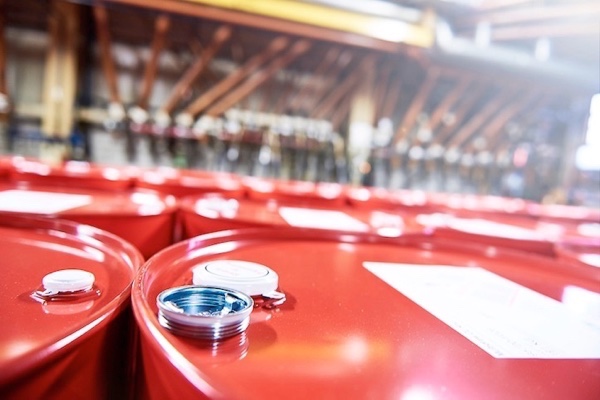Consumables
Zeller+Gmelin: Optimal and sustainable use of containers

Tuesday 09. November 2021 - Zeller+Gmelin relies on reconditioning of used drums and containers. Conscientious handling of the environment and resources as well as responsibility towards future generations are elementary components of Zeller+Gmelins corporate philosophy.
Recycling or the return of used raw materials and industrial packaging to the economic cycle contributes significantly to an increase in resource efficiency, to the conservation of natural resources and ultimately to securing a common future. The sustainable use of reconditioned drums and IBCs (intermediate bulk containers) is therefore a matter of course for the lubricant experts at the Swabian site in Eislingen, which has been climate-neutral since 2020.
The reconditioning of sheet steel and plastic drums as well as IBCs is currently the most environmentally friendly way to return industrial packaging to the recycling loop. Natural resources can be conserved in the best possible way and CO2 emissions are also minimised. Many valuable resources are lost through conventional disposal. Reconditioned drums, on the other hand, have a significantly lower CO2 footprint than newly manufactured drums,” says Gülen Ak, Head of Quality, Environmental and Energy Management as well as Sustainability and Compliance Officer at Zeller+Gmelin. We are making another important contribution to reducing our company’s environmental and energy impact, while our customers will of course continue to receive high-quality and reliable packaging from us.
Two-thirds less greenhouse gases with reconditioned IBCs
Reconditioned containers save thousands of tonnes of CO2 annually. For example, a 2014 US study conducted by Ernst & Young proved that washing a combination IBC emits 67 per cent less carbon dioxide than making a new container. When the inner container of an IBC is exchanged (rebottling), there are still 20 percent fewer CO2 emissions. An inner container exchange is necessary when cleaning is no longer possible or the container has reached the legally prescribed maximum period of five years,” emphasises Gülen Ak.
In the case of steel industrial containers, the environmental and energy balance speaks a similarly clear language: those who have lidded drums reconditioned by washing save an average of 61 per cent greenhouse gases, while the figure for a bung drum is still 36 per cent. We at Zeller+Gmelin are therefore consciously pursuing the goal of less disposal through recycling,” the environmental officer continues. “Against the background of rapid climate change and increasing global warming, this is an urgently necessary and important step in the right direction.”
Less CO2 while maintaining high packaging quality
In 2020 alone, for example, the lubricants experts at Zeller+Gmelin saved 3,608,448 kg of CO2 by using reconditioned packaging compared to using virgin packaging.
The Reko drums are specially reconditioned and are comparable in quality to a newly produced drum. For this purpose, Zeller+Gmelin works together with professional and certified reconditioning companies. After reconditioning, each individual barrel is subjected to a strict quality inspection. This ensures that only technically flawless products are delivered,” assures Gülen Ak and at the same time points out: “The CO2 savings from our reconditioned IBCs alone could heat a three-room flat for 1,887 years.”
Certified safety for lubricant users
Thus, reconditioned industrial packaging of the Zeller+Gmelin brand has the same performance characteristics as new packaging and also offers assured protection for hazardous goods approvals. We take a holistic view of the environmental relevance of our products and services – from development and production to disposal and reintegration into the economic cycle. And all this with consistently high packaging and lubricant quality as well as less logistical effort in procurement and disposal,” is Gülen Ak’s final conclusion.
